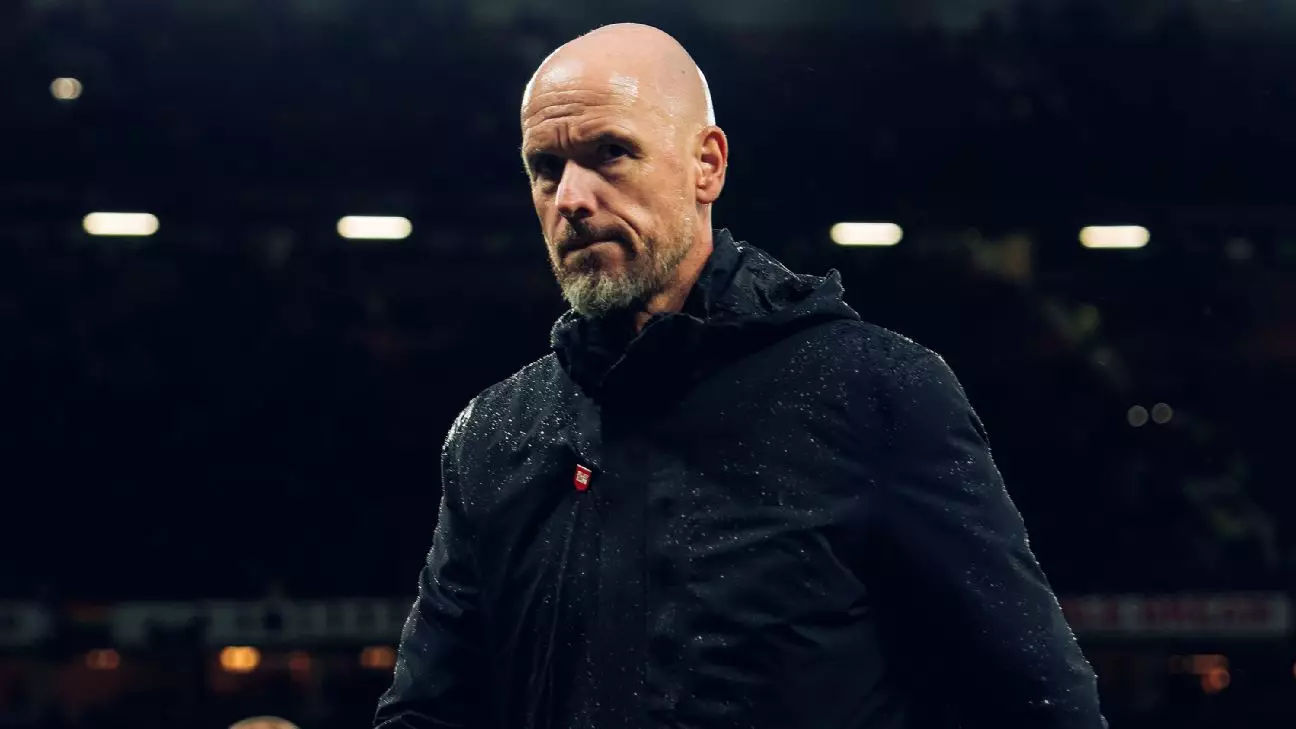Erik ten Hag’s tenure at Manchester United has reached a critical juncture, with the weight of expectations increasingly pressing down on him. As the team finds itself languishing in the lower regions of the Premier League table, it is evident that ten Hag is running short on justifications for the ongoing lack of success. Following a disheartening 3-0 loss to Tottenham at Old Trafford, even his propensity for seeking excuses has begun to wear thin. The broader landscape of Premier League management serves as a stark contrast to ten Hag’s struggles, highlighted by the swift successes enjoyed by his contemporaries, underscoring the urgent need for change within the Manchester United camp.
The defeat against Tottenham has raised questions about ten Hag’s ability to motivate and lead his squad effectively. The match revealed profound weaknesses in the team’s performance, with United unable to capitalize on early opportunities and instead succumbing to the slick counterattacking play of Spurs. While ten Hag attributed the defeat to a first-half red card shown to captain Bruno Fernandes, his assessment lacked comprehensiveness. Tottenham’s dominance was evident long before the dismissals; they exploited United’s defensive frailties, holding 60.4% of the possession and registering a multitude of shots on goal compared to United’s anemic attempts. Such statistics reflect a troubling truth: ten Hag’s tactical setups are failing to resonate with the players, leading to disjointed and uninspired performances on the pitch.
In an era where results define managerial longevity, ten Hag’s challenges are compounded by the relentless pressure from both fans and management. His predecessors and contemporaries, such as Unai Emery and Ange Postecoglou, have shown that a team can quickly transform with the right strategic vision and execution. Their successful management styles serve as a pointed reminder that time is a luxury rare in modern football. The fact that other managers, often with a shorter period in charge, have managed to instill confidence and success in their teams only amplifies the scrutiny on ten Hag.
His assertion that injuries and underlying issues are to blame for United’s inconsistency fails to convince in a league where most teams experience their own share of adversity. The extensive investment of approximately £550 million into player transfers since ten Hag’s arrival should have fortified the team, yet the failures on the field indicate a less than favorable return on investment. Moreover, his array of high-profile signings has not produced the desired results, leaving fans questioning his tactical acumen and ability to foster a cohesive unit.
The contrast between ten Hag’s record at Manchester United and the achievements of managers like Emery at Aston Villa and Postecoglou at Tottenham raises unsettling questions. Both managers inherited challenging situations but have rapidly transformed their teams into competitive squads. Emery, in particular, managed to elevate a struggling Villa side to Champions League contention in under two years, while Postecoglou has effectively reshaped Tottenham’s identity following the departure of a key player in Harry Kane. The fact that these managerial changes have yielded immediate positive results emphasizes how ten Hag’s managerial approach necessitates scrutiny.
Moreover, the rapid successes of relatively new managers, such as Enzo Maresca at Chelsea and Arne Slot at Liverpool, further illustrate the demanding nature of the Premier League. They have quickly adapted to their new roles and garnered results that have put their respective teams in contention for top spots. In comparison, ten Hag’s inability to replicate such results, despite ample time and resources, raises significant doubts about his suitability for the role.
As the season progresses and the stakes continue to rise, the pressure on Erik ten Hag will only intensify, with questions about his future at the helm becoming increasingly pertinent. His latest comments reflecting a united front may indicate a desire for stability and resilience, yet it belies the reality that Manchester United is in danger of veering off course. The burden now lies with ten Hag to reverse the team’s fortunes and showcase that his management style can transcend the challenges that have plagued his early tenure.
Without a substantial turnaround in performance and results, his position may become untenable. The environment at Old Trafford is likely to become even more challenging if the club continues to trail behind their rivals. As they face critical fixtures in the coming weeks, it is imperative that ten Hag either proves that he can guide Manchester United back to form or faces the consequences of a sinking ship destined for failure. The clock is ticking, and only immediate improvements will stave off the looming crisis that threatens his managerial position and the future of the club.
